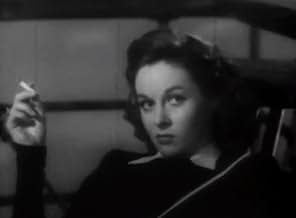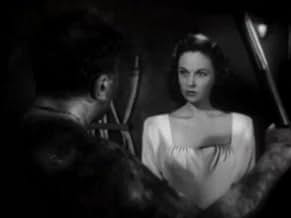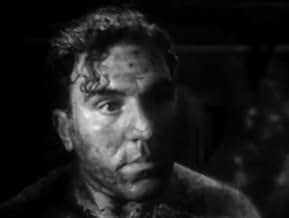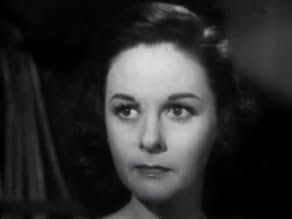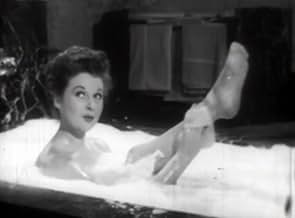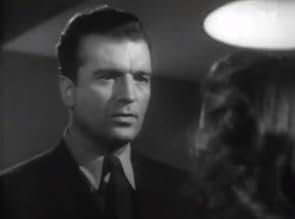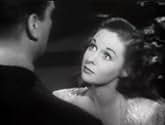The play THE HAIRY APE is a hundred years old. The movie was made during World War II, but the worldview behind the play comes from before World War I. The protagonist, an uneducated laborer, considers himself a man who belongs, because he keeps the machines running; but a pampered heiress is shocked at the look and sound of him and in his resentment he goes off in a self-defeating attempt to fight the world, by communism or whatever else it takes. Such a fight would be no fit material for a Hollywood movie during WWII, when the idea was that all sectors of society stand together in common cause. So in the movie, the heiress touches off a different kind of conflict-- a conflict between the common cause and her particular personal selfishness, which she supports with unlimited money and allure. Susan Hayward in full-out "divine bitch" mode adds to the conflict an element of sex that is foreign to the play. In a way, the importance that the out-of-reach woman assumes for the protagonist, and his ultimately ambiguous breakthrough meeting with her at the end of the movie, seem like a topsy-turvy version of CITY LIGHTS. William Bendix is Chaplinesque, too, as lead actor. His best scenes are scenes of silent emotion, and they are impressive. But whether or not it has to do with what we've absorbed from his usual casting elsewhere as a "good-natured slob" (to quote from THE GLASS KEY), Bendix doesn't seem to play the role with the brutal primitivity that the play implies.
Not only does the movie give a different slant to the play, it also leaves out scenes (such as the communist scene) and it inserts others (beefing up Susan Hayward's role). The result is a good, watchable film albeit a little old-fashioned, but it's shocking to think that someone could see the movie and assume it gives a reliable idea of the play.

